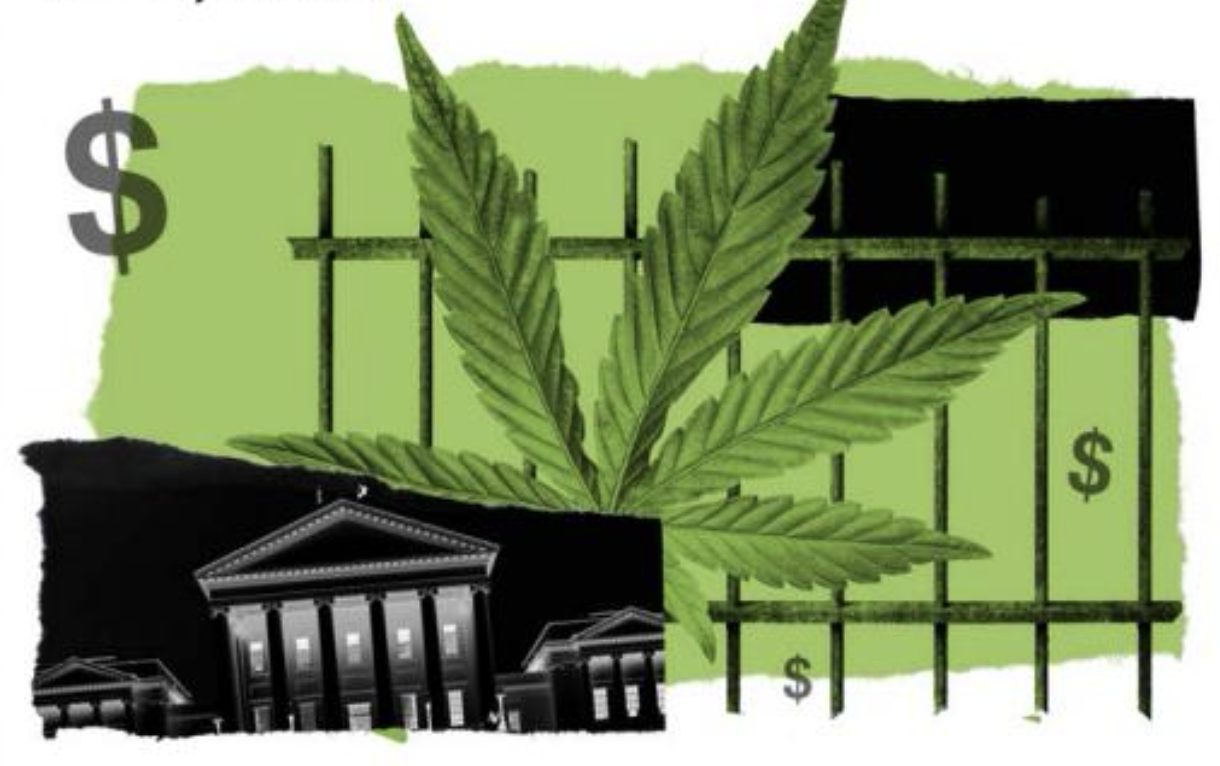Nationwide, Black and white people use marijuana at similar rates. In Virginia, Black people make up about 20 percent of the population—but 52 percent of citations for marijuana possession in the last year were given to Black people, says Chelsea Higgs Wise, executive director of Marijuana Justice, a Richmond-based group fighting for the enactment of equitable legalization policies.
This month, both houses of the Virginia legislature passed bills that will allow legal, adult-only, recreational marijuana purchase and use beginning in 2024. In the next few days, a small conference of legislators from both houses will meet to reconcile the two bills. Governor Ralph Northam is expected to sign the final version into law, making Virginia the first Southern state to legalize the drug.
Decades of racial discrimination in enforcement means marijuana legalization is a consequential criminal justice issue. And for many supporters of legalization, Virginia’s proposed bills fail to provide adequate redress for the harms caused by the decades-long war on drugs, specifically within Black and brown communities.
“As of right now, I’m terrified,” says Higgs Wise. “The bills now are really bad. I would not want them to pass as they are right now.”
In response to the proposed legislation, Marijuana Justice—joined by RISE for Youth, ACLU of Virginia, and 21 other advocacy groups—sent a letter to Northam and the General Assembly, urging them to meet specific criteria that center on racial equity.
A central point of contention is the legalization timeline. While the state Senate bill would permit simple possession of marijuana for adults as early as July 1, 2021, the House version would not do so until 2024, when the sale of marijuana is also legal.
Many activists also do not think it’s necessary to wait until 2024 to permit the sale or possession of the drug, pointing to the marijuana-friendly states Virginia could look to for guidance.
“It’s going to take time to establish a new agency and go through a new licensing process, but does it need to take that long? Probably not,” says Jenn Michelle Pedini, executive director of Virginia NORML. “Such a delayed implementation really only serves the illicit market.”
Pedini suggests that legal access be quickly expanded through existing medical marijuana providers, as many other states have done.
Another key criminal justice component of legalization is the expungement of marijuana-related offenses from criminal records. Both bills would automatically expunge misdemeanors and allow those convicted of felonies to petition for expungement. Certain expungements may also require people to pay off court fees.
Automatic expungement of misdemeanors is crucial, but not a conclusive step. “Prior to 2020, anything over half an ounce was a felony,” explains Higgs Wise. “The people who have been most impacted by these unfair laws are the people with the felonies,” which impact career, housing, and education opportunities.
For those currently incarcerated, the new laws aren’t a get-out-of-jail-free card. People who are currently in jail or prison for marijuana-related offenses would be resentenced, but it remains unclear which offenses would be eligible for reevaluation, and when the resentencing process would begin.
The legislation would also make it illegal to have marijuana inside a vehicle, even if it’s not being used. Activists fear this will only worsen traffic stops—a huge driver of marijuana cases.
“Last year, we fought really hard and got the odor of marijuana to no longer be a reason to search or seize in your car,” says Higgs Wise. “In order to continue to criminalize us in the car, now all a cop has to do is say they see a green leafy substance in your car anywhere, and they have a reason to search.”
If a container of marijuana that’s been opened is found inside the car, the driver could be charged with driving under the influence.
Meanwhile, minors caught with marijuana would continue to face harsh penalties under the proposed laws, including fines, drug tests, probation, school expulsion, and the denial of a driver’s license.
Such punitive measures have proven to have a disproportionate impact on Black youth. While Black and white youth are arrested at similar rates, Black youth are significantly more likely to be incarcerated instead of put into diversion programs.
“There’s actually data that shows us that there’s no increase in youth use because of marijuana legalization,” says Higgs Wise. “Why in the world create more penalties for young people, when we know which young people are going to be the most impacted?”

























